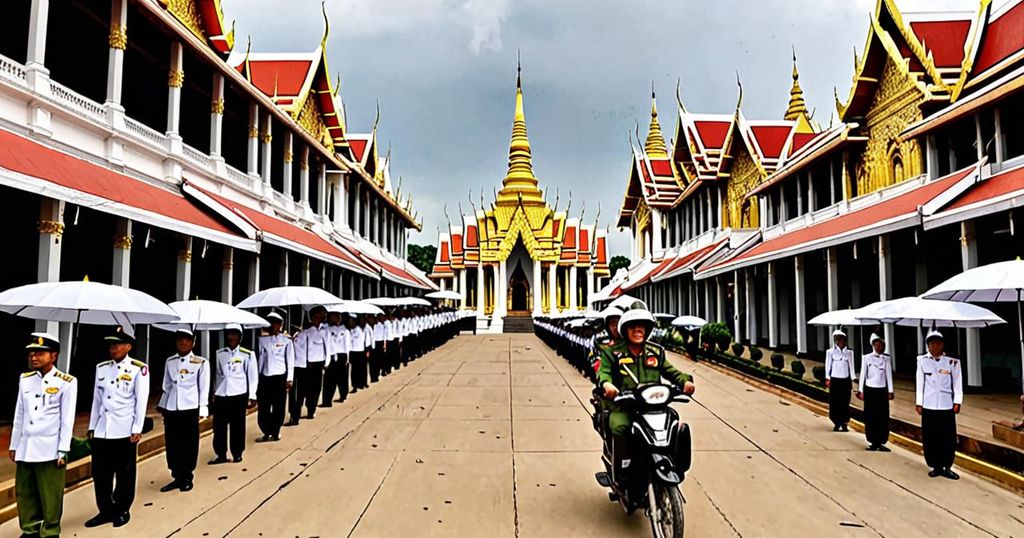Thailand is currently contemplating a new approach to the unrest in Myanmar amidst the ongoing conflict between rebel factions and the military junta. The nation is increasingly emphasizing a humanitarian role in anticipation of a potential surge in refugees seeking shelter across the border.
Myanmar has been in a state of turmoil since the military coup in February 2021, with violent clashes spreading throughout the country. As the pace of fighting is expected to intensify, Thailand foresees an increase in the number of refugees seeking refuge within its borders. Consequently, the Thai government has committed to providing enhanced support for these displaced individuals.
Thai Foreign Minister Parnpree Bahiddha-Nukara recently conveyed readiness to establish shelters for Myanmar refugees, signaling a shift in Thailand’s approach. In addition, the government has reached an agreement with Myanmar to form a task force dedicated to delivering humanitarian aid to those internally displaced within Myanmar.
Political analyst Thitinan Pongsudhirak emphasized the need for the Thai government to engage a wider array of stakeholders to effectively address the conflict in Myanmar. This comprehensive strategy is paramount as the situation continues to deteriorate, resulting in further displacement.
Since the military junta seized control in 2021, it has encountered opposition from opposing factions. The National Unity Government, composed of ousted politicians and civilians, has been actively challenging the junta. A recent military offensive, known as Operation 1027, has presented a significant obstacle to the military’s authority, leading to the capture of numerous territories across the country.
Thailand’s shift in stance coincides with a change in leadership, with Prime Minister Srettha Thavisin and new military chief General Songwit Noonpakdee assuming their roles. Their approach is perceived as more outward-looking and cooperative, particularly in their willingness to engage with various stakeholders in Myanmar.
Nonetheless, the possibility of increased assistance from Thailand has been met with skepticism by some in Myanmar. Tun Aung Shwe, the National Unity Government’s representative to Australia, has stressed the importance of involving all parties in collaborative efforts, underscoring the profound concerns within Myanmar regarding the crisis and the involvement of external entities.
While Thailand has made commitments to aid Myanmar, apprehensions have been raised in light of the repatriation of thousands of Myanmar refugees by Thai authorities. Despite the challenges posed by the return of these refugees and the intricate dynamics of the conflict, Thailand has reiterated its dedication to safeguarding refugees within its borders.
As the situation in Myanmar continues to unfold, Thailand’s evolving role in the crisis underscores the complexities of addressing humanitarian crises within the context of international relations. As Thailand grapples with balancing its strategic interests and humanitarian obligations, the ramifications of its decisions will be closely observed by stakeholders both within and beyond the region.

Leave a Reply